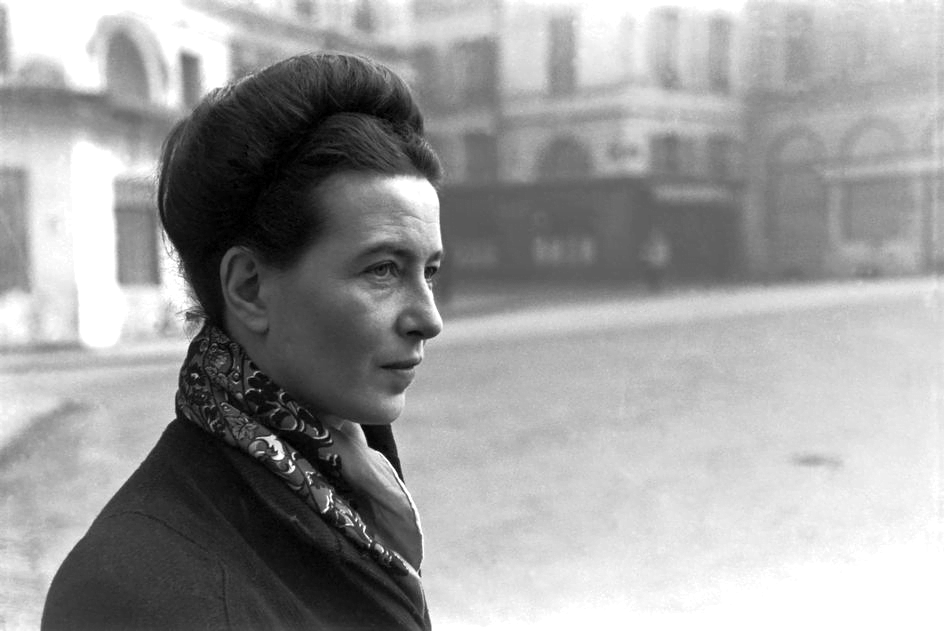On Simone de Beauvoir’s 110th birth anniversary, we look at some of the important conceptualizations she proposed in her greatest work, Le Deuxième Sexe or The Second Sex and their relevance today. First published in 1949, written in two volumes, and one of the most influential works on existential feminism, The Second Sex has been translated and re-published in many languages.
The Second Sex has its first victory in highlighting how begrudgingly the world accepts the existence of womankind. Then Simone de Beauvoir says that now, since it is inevitable that women will exist, then we must face the question of ‘what is a woman?’ and goes on with her almost thousand page, a two-volume account of women as relational beings, the ‘other’, not sufficient unto themselves.
It is this pivotal account that led a whole generation of women to think and articulate differently and to further conceptualize on Simone de Beauvoir’s thoughts. At the heart of Simone de Beauvoir’s writing is the existential thought of the Man as the sovereign self and Woman as the objectified other, and the conflicts and inequalities that arise due to such a conceptualization.
One is not born, but rather becomes, a woman.
She further stresses the absence of a shared solid past or history, or a religion of their own, that incapacitates women from uniting against this conception. While feminist theorization has moved way beyond existentialism, de Beauvoir’s work, mainly her ability to be critical of psychoanalytic theorizations of gender, was the foundation of many influential writings that would come by later. For example, Betty Friedan’s Feminine Mystique, Kate Millet’s Sexual Politics, and Germaine Greer’s The Female Eunuch, while also allowing a more different conception of sex and gender by Judith Butler much later.
Second-wave it is, but most of Simone de Beauvoir’s ideas are still quite relevant. The legal status of women may have evolved to somewhat equal since the last five decades, but one cannot ignore how access to the law is prohibited by rigid religious systems created by Man.
Her questions like, “But is it enough to change laws, institutions, customs, public opinion, and the whole social context, for men and women to become truly equal?” are still complex questions. Her famous quote, a much contested and spoken about idea that comes from The Second Sex is, ‘One is not born, but rather becomes, a woman’. With this statement, she makes sex and gender separate and this separation is the basis of a lot of feminist writings.
Also Read: Virginia Woolf And Her Plea For A Room Of One’s Own
This distinction has been the sole crucial feminist argument against biology, often repeated in the basic nature-nurture feminist debates. Her understanding of gender as a social construct forms one of the core beliefs of feminism. While the two are separate, sex and gender are still related.
It was Judith Butler, based on The Second Sex, who further explored the relationship between sex and gender, questioning how much of a choice one has in ‘becoming’ a particular gender. This further led to other important theorizations of sex-gender relations, and sexuality. There is no possibility of being able to encapsulate the heavy influence of The Second Sex on generations of feminists to follow.
Based on two important conceptions, that of the woman as the other, and that of gender as a social construct, Simone de Beauvoir further unravels the reasons behind the lived realities of women. By making the women as the other, second to man, she explains how a certain mystery is attributed to the woman, further adding to snatching away her agency.
Her understanding of gender as a social construct forms one of the core beliefs of feminism.
“Woman is the victim of no mysterious fatality; the peculiarities that identify her as specifically a woman get their importance from the significance placed upon them. They can be surmounted, in the future, when they are regarded in new perspectives. Thus, as we have seen, through her erotic experience woman feels – and often detests – the domination of the male; but this is no reason to conclude that her ovaries condemn her to live forever on her knees”, she writes.
While today we talk about first world problems as existential crises, with a sense of humour, of course, The Second Sex talks about a rather real existential crisis. One that we as womankind have been facing, that of perpetually being ‘othered’ by institutions and agents of socialization that were created by men.
As a woman, it helps answer a lot of questions of equality and liberation in a deepened manner. With every reading, The Second Sex is bound to take you on a different personal journey and while it may not be the end to your complex quest, it will definitely complexify it further.
Also Read: The Elephant In The Room Review: Gendered Expectations In The 21st Century
Featured Image Credit: The Paris Review
About the author(s)
Siddhi is a women-centred social work student and ex-journalist, who actively enjoys moping and whining.




